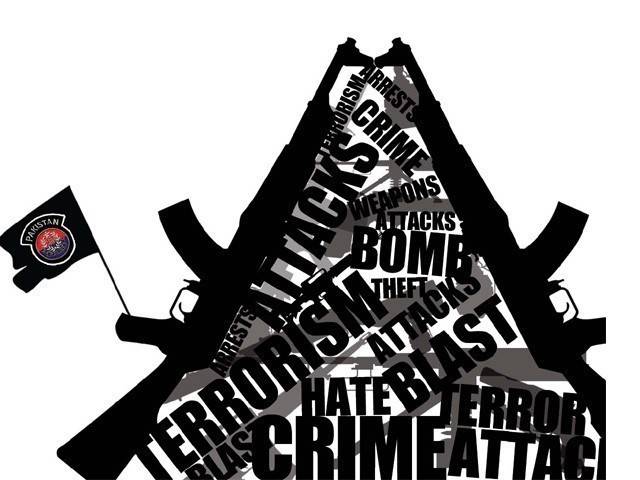The Supreme Court of Pakistan has finally directed the lower courts not to deal every crime under the notorious Anti-Terrorism Act 1997 (ATA). The text of the judgment, authored by Justice Dost Mohammad Khan, reads, “The courts of law shall not lightly ignore that being a harsh law enacted to punish terrorist or hardcore militant, the Anti-Terrorism Act (ATA) 1997 will not be extended liberally to cover criminals who commit the crime of murder… that has no connection with terrorism or militancy…”
It is worth recalling here that Pakistan Penal Code is the main substantive law in the area of criminal law of the country. However, to curtail terrorism in the country, the main substantive law is the ATA. The ATA prevails whenever a section of ATA is applied to a case because it is a specialised law. PPC is used in cases where the FIR registered does not contain any section of the ATA. Under the law, several new offenses are defined as acts of terrorism with heavier penalties ranging from death to several years in prison.
Since the day ATA was enforced, various experts had expressed their concern about potential abuse of the law. With the passage of time, objections of those who protested against the vague definition of terms like terrorism proved right. Police often insert the sections of ATA in FIRs against the accused though their action’s intentions are not to spread of terrorism. ATA is seen as a tool of taking revenge from one’s opponents. Practices like these automatically resulted in excessive workload for the Anti-Terror Courts (ATCs). Practices of bringing every offense to ATCs have defeated the real purpose of the aforementioned Act. Responding to the need of the hour, the Supreme Court has addressed one important issue in the criminal justice system of the country.
One major flaw that experts find in the text of the Act is that under the said Act, those offenses, which under normal circumstances, do not lead to a death sentence are punishable by death. Also important to highlight is the issue of offenses committed by minors, which make part of the Act. Invoking the sections of this Act, the courts have even punished minors to death. M Iqbal, resident of Central Jail, Gujranwala, is one such example in this regard.
The Supreme Court has taken a step in the right direction. The Apex Court should also direct legislation to limit the scope of ATA. If no steps are taken to limit the extent of the Act, the Act, though enforced to avoid terrorism, will become a tool in the hands of the state to terrorise its population.






